The Cleveland Foundation today announced the winners of its 79th annual Anisfield-Wolf Book Awards. The 2014 recipients of the only national juried prize for literature that confronts racism and examines diversity are:
“The 2014 Anisfield-Wolf winners are exemplars who broaden our vision of race and diversity,” said Dr. Henry Louis Gates, Jr., who chairs the jury. “This year, there is exceptional writing about the moral complexity of Israel, a transporting first novel set in war-torn Chechnya and a collection of poems on the myth and unapologetic masculinity of the first African-American heavyweight champion, Jack Johnson.”
Gates is the Founding Director of the Hutchins Center for African and African-American Research at Harvard University, where he is also the Alphonse Fletcher University Professor. He praised the indispensable forging of Caribbean identity through the literature of two prolific giants: Guyana’s Sir Wilson Harris, 93, and Barbados’ George Lamming, 87. Poet Rita Dove, novelist Joyce Carol Oates, psychologist Steven Pinker and historian Simon Schama complete the Anisfield-Wolf panel of judges.
Cleveland Foundation President and Chief Executive Officer Ronald B. Richard said the global scope of this year’s winners is gratifying, and reflects founder and donor Edith Anisfield Wolf’s belief in the unifying power of the written word.
“The Anisfield-Wolf Book Awards rose from the philanthropic vision of one woman who realized that literature could advance our thinking and beliefs about race, culture, ethnicity, and our shared humanity,” Richard said. “In our centennial year, we are proud to showcase the literature that sets the national – and international – table for our conversations about race and cultural difference.”
Meet the Winners:
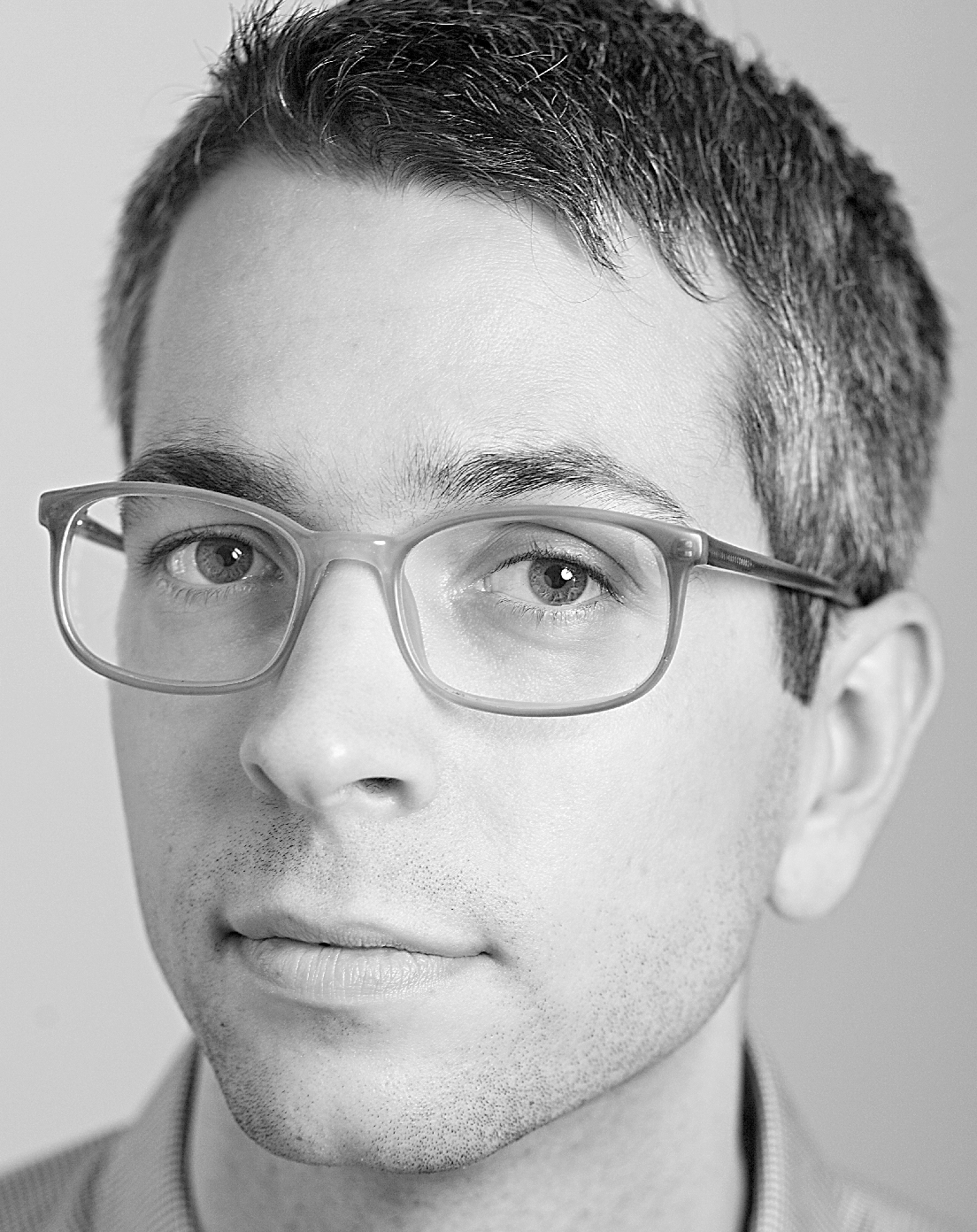
Anthony Marra, A Constellation of Vital Phenomena, fiction
A Constellation of Vital Phenomena is an intoxicating first book about intersecting lives in war-torn Chechnya. The novel begins as Russian officers burn down a Muslim home and “disappear” the father Dokka but can’t find his daughter Haava. A neighbor hides the 8-year-old girl in a barely-functioning hospital. Novelist Anthony Marra sets this story over five taut days, as the child is hunted and the adults around her try to navigate radically different circumstances. Marra teaches at Stanford University.
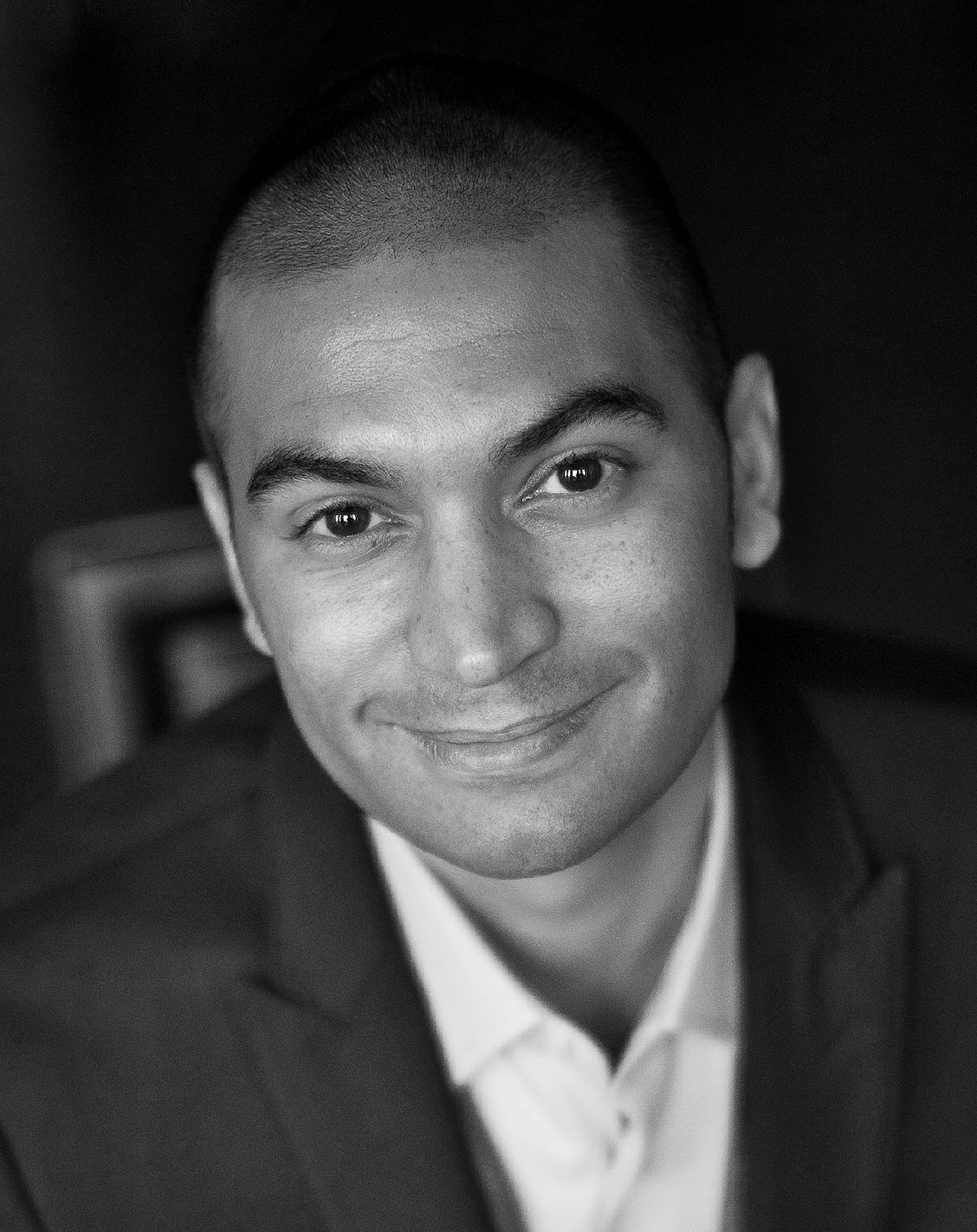
Adrian Matejka, The Big Smoke, poetry
“The Big Smoke” is a nuanced, polyphonic book that explores the life of boxer Jack Johnson, the first African-American heavyweight world champion. A fan of the sport, Adrian Matejka (Ma TEA ka) was moved by this son of emancipated slaves – born in Texas just 13 years after the end of the Civil War – who loved Shakespeare, Verdi’s operas, travel abroad and a series of white women. The Big Smoke follows Johnson until 1912 in 52 poems. Matejka spent eight years researching and writing this book. He teaches at Indiana University in Bloomington.
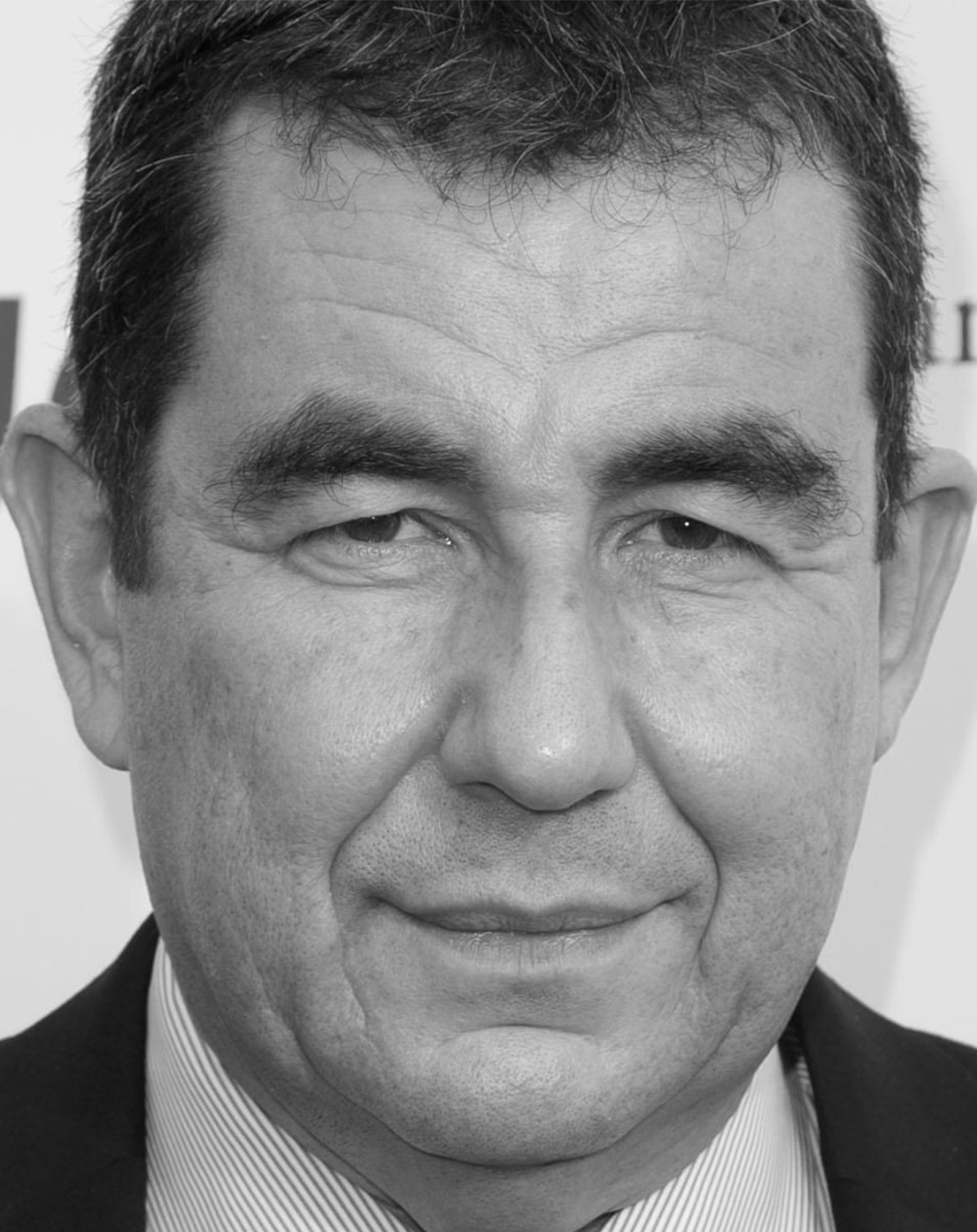
Ari Shavit, My Promised Land: The Triumph and Tragedy of Israel, nonfiction
Ari Shavit, a columnist for Jerusalem’s daily newspaper Haaretz, spent five years writing My Promised Land: The Triumph and Tragedy of Israel in English and Hebrew simultaneously. A former Israeli paratrooper, peace advocate and great-grandson of Victorian-era Zionists, Shavit carefully examines a fraught and difficult history, interweaving family memoir, multiple documents and hundreds of interviews with Arabs and Jews. This important, clarifying book asks why Israel was created, what it has achieved, what went wrong and if it can survive.
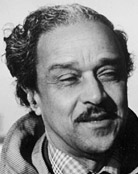
Sir Wilson Harris, Lifetime Achievement
Sir Wilson Harris is a Guyanese writer who lives outside London. He began his professional career 70 years ago as a government surveyor of the vast interior of Guyana, an experience that informs all 25 of his novels, the first of which, Palace of the Peacock, was approved for publication by T.S. Eliot.
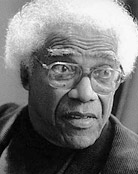
George Lamming, Lifetime Achievement
George Lamming, who spent decades as a leader of the Caribbean literary Diaspora, writes deeply political books that critique colonialism and neo-colonialism. His first novel, In the Castle of My Skin, drew accolades from Jean-Paul Sartre and Richard Wright. Lamming lives in Barbados.
The Anisfield-Wolf winners will be honored by The Cleveland Foundation Sept. 11 at a ceremony at the Ohio Theatre in Cleveland. Jury Chair Gates will host.
Historian Simon Schama is careful not to call his new PBS series the “definitive” look at Jewish history, but by others’ estimation, it is close.
The Columbia University professor and Anisfield-Wolf juror leads viewers through more than 3,000 years of Jewish history in the five-hour documentary, “The Story of the Jews.” For Schama, who is Jewish, the subject matter is not only personal, but pertinent.
Condensing thousands of years of Jewish history was no easy feat, but Schama went to great lengths to show the beauty and resilience of Jewish culture. “It’s not just a history of death and smoke and disaster,” Schama says.
The documentary is based on Schama’s newly released book of the same name. Volume one, “The Story of the Jews: Finding the Words 1000 BC-1492 AD” hit bookshelves this month and the second volume, covering 1492 to the present, will be released this fall.
Episodes one and two premiere March 25 at 8 p.m., and episodes three through five debut on April 1. Watch the three-minute trailer below and tell us if you’ll be tuning in:
Novelists Zadie Smith and Chimamanda Ngozi Adichie – both Anisfield-Wolf Book Award winners — displayed a warm, comfortable familiarity on stage for their recent appearance at the Schomburg Center for Research in Black Culture in Harlem.
Fresh off Adichie’s National Book Critics Circle win for “Americanah,” her novel about “love, race and hair,” the conversation between the two literary lionesses veered from the amusing to the insightful. Watch the duo discuss Adichie’s fascination with race and class, the absurdity of romance novels, and Beyonce.
On a freezing, overcast March day, the writer Jesmyn Ward made her first foray to Cleveland. She barely smiled as she stood behind a lectern in brown leather boots, red corduroy pants and a gray sweater set. Yet several in her audience at Cleveland Public Library murmured that the piercing, prepared remarks Ward read should be published immediately. Others were visibly moved and brimming with questions.
Ward, 36, who won a National Book Award for her second novel, “Salvage the Bones,” spent the morning with Cleveland students from Glenville High School and the afternoon exploring the question of who is allowed to speak: “We all feel inadequate when faced with a blank page, an empty canvas or a silent instrument. We must battle self-doubt or negative introspection with every sentence, every punctuation mark.”
Growing up poor and black in rural Mississippi, Jesmyn wore hand-me-down clothes and ate meals stretched by food stamps. She envied classmates who could buy Scholastic books, even as she walked to the library, gravitating toward headstrong protagonists: Mary in “My Secret Garden” and Cassie in “Roll of Thunder, Hear My Cry” and Claudia in “From the Mixed-Up Files of Mrs. Basil E. Frankweiler.”
“Their environments were other worlds where I hid from the heat or my mother or my father or some other grown-up in my life,” Ward remembered. When her father lost his job at the local glass factory, her family moved in with Ward’s maternal grandmother. Fourteen people wedged into the house in coastal DeLisle, Mississippi—Jesmyn, her parents, two sisters and a brother; a cousin; her grandmother’s four sons and three daughters; plus the matriarch herself: “It was the first and only time I lived with so many people I loved.”
Ward’s fiction and her arresting 2013 memoir, “Men We Reaped,” beckons readers into this community. The title comes from Harriet Tubman: “We saw the lightning and that was the guns; and then we heard the thunder and that was the big guns; and then we heard the rain falling and that was the blood falling; and when we came to get in the crops, it was the dead men we reaped.”
The memoir centers on the October 2000 killing of Ward’s teenage brother Joshua by a drunk driver, and the violent, early deaths of four other young black men in their circle. Now a professor of creative writing at the University of South Alabama, Ward said she keeps returning to the site of her story — despite the poverty, racism and lingering damage from Hurricane Katrina, whose wrath Ward makes memorable in “Salvage the Bones.”
An active blogger and Twitter user, Ward identifies with communities on the margins. When a Cleveland reader – speaking for her book club — asked repeatedly if Ward was trying to foment social change, the author mildly eschewed the grandiose: “I hope that it changes the way readers think about people like me. If I can affect one reader, then by word-of-mouth, that makes a change over time.”
“The word ‘salvage’ is so close to ‘savage’,” Ward told her listeners. “It connotes resilience, fierceness and courage.” She describes her novel’s pregnant, teenage narrator, Esch Batiste, brushing off the ants and standing up after the hurricane, as the only thing she could do. “This is savage – you make a future from it, you tell your story, you survive.”
Ward said that when Hurricane Katrina cornered her own family, she swam to escape alongside her pregnant sister. The Wards sheltered in a tractor in an open field during a Level Five hurricane, she said, while a white farm family refused to take them in.
The Cleveland audience listened intently. One man called Ward’s voice “a smooth, velvet instrument.” One woman compared her writing to that of Edwidge Danticat, who won an Anisfield-Wolf Book award in 2005 for her novel “The Dew Breaker.” (Ward allowed that she had loved Danticat’s work since the novel “Krik? Krak.” ) A professor from Kent State University said she had added Ward to her syllabus.
Ward stressed the necessity of discipline and craft; she said her characters Skeeter and China (a pit bull) came out of a writing exercise during her MFA years at the University of Michigan. Still, Ward said, “my mother sometimes thinks I should return to school and study nursing. She is suspicious of writing.” Ward said her first stabs were stilted attempts to write about cellos and lives she didn’t know. “I was young and black and poor and a girl and I didn’t believe there was anything about my life worth exploring.”
She broke that barrier with a college entrance essay. It opened the door to Stanford. Like all of Ward’s work, it said “We are here. This is what life is like for us. Hear us.”
For the first time, the Anisfield-Wolf Book Awards will sponsor a movie at the Cleveland International Film Festival: the documentary, “Alice Walker: Beauty in Truth.” It will screen three times this month.
Directed by long-time Alice Walker collaborator Pratibha Parmar, the film weaves interviews, readings and archival footage to explore the themes of Walker’s literary work and advocacy. At age 70, Walker is best known for writing The Color Purple, 1982’s Pulitzer Prize-winning novel. It generated enormous controversy, and an influential film, which the documentary explores. Also central is Walker’s lifelong activism – stretching from voter registration drives in the 1960s to championing women’s rights in the present-day. Collaborators and critics and Walker herself speak to the merits of her political life. Watch the trailer below:
“Alice Walker: Beauty in Truth” will screen on three successive days: March 26 at 4:15 p.m., March 27 at 9:30 a.m. in Tower City, and March 28, at 7:00 p.m. at the Shaker Square Cinema. Festival attendees can take advantage of the Cleveland Foundation’s discount code in honor of its centennial (CLE100) and save $2 on the purchase of every ticket to every film throughout the festival. Purchase tickets here.
Chimamanda Ngozi Adichie’s “Americanah” took the top prize for fiction at the National Book Critics Circle (NBCC) Awards .
Karen Long, Anisfield-Wolf manager and judge for the NBCC, praised Adichie’s latest: “Americanah”—it should be stressed—doesn’t reprimand. The writing glints; minor characters flair and spark.”
In a recent HuffPost Live interview, Adichie asserted that “Americanah” was the book she wanted to write for her own personal satisfaction:
“I felt almost liberated,” she remarked. “This is the novel where I’m completely having fun and I’m free. I’m not burdened by a sense of duty of responsibility. I was just having fun. With Half of a Yellow Sun, I felt this weight of responsibility. I knew many people would read the novel not as fiction, but as history….With Americanah, there was no burden.”
On the eve of the NBCC awards, Adichie stopped by the Bruce Lehrer Show to discuss the themes of race and identity woven throughout Americanah. Listen to the interview in its entirety below:
Occasionally, a white writer will turn to Mat Johnson, the novelist who created the much-praised “Pym” and “Hunting in Harlem,” with a manuscript and a plea to help avoid a racial blunder.
“My colleagues will say, ‘I have a black character, a maid, and I don’t want her to talk like a Harvard professor, but I don’t want her to sound like Stepin Fetchit either,’ ” Johnson told a packed audience in Seattle. “I’m both sympathetic and put off by these requests.”
Johnson, who runs the creative writing program at the University of Houston, described this predicament at the annual convention of the Association of Writers and Writing Programs. Randa Jarrar, the author of the novel “A Map of Home,” shared a similar experience:
“I just got an email two days ago from a friend who said, ‘I have a scene in my novel, coming out from a major publishing house, in which a couple of Arab women are sitting around a pool. Can they wear swimsuits?’ That’s wrong. That’s focusing on difference, and a writer shouldn’t do that.”
Jarrar and Johnson led a lively panel called “How Far, Imagination: Writing Characters of another Race in Fiction.” The speakers weren’t interested in the reductive, polarized debate – I’m free to write whatever I want vs. Ooooh, one should never transgress identity boundaries. Instead, the panelists steered the discussion toward nuance.
“I inhabit so many identities,” Jarrar said. “I’m Arab-American, Palestinian, queer, a single parent. I’m fat. If you know who you are, it works to improve writing characters in general.”
Panelist Susan Ito focused on the classic example from 1997: “Memoirs of a Geisha” by the white American writer Arthur Golden. Mineko Iwasaki, the Japanese woman interviewed for the book, sued Golden, and the two parties eventually settled out of court. “Did that book succeed or fail?” Ito asked. “Commercially, it was spectacularly successful. And I still know people who say it is their favorite book. If we are asking about writing across race, we need to ask what is success, and by what measure?”
Fiction writer Patricia Engel said her own work improves exponentially with research: “Relying strictly on my imagination, that writing was flat and aimless.” She suggested that aspiring writers try, as an exercise, to write a character outside their own experience, do the research and show themselves, too, in the work.
Johnson declared he would steal that idea. “What people think of as political concerns in fiction are actually artistic concerns: how to make a character a full and living human being.”
But good intentions can crater fast. In Johnson’s first workshop earning an MFA at Columbia University, he remembered that “a white woman wrote a black character and the workshop ended with the writer in tears and the black students furious.”
Now a professor, Johnson stressed that he wants to be the first to encourage students to examine their motives. “It’s particularly difficult for a white writer to write black, Latino, Asian characters. There are centuries of manipulating the images of people of color. White writers have to deal with that – have to ask how they are negotiating the history of stereotypes.”
The panelist agreed that a good place to start is the 1992 documentary “Color Adjustment” by filmmaker Marlon Riggs. It looks at race through the lens of prime time.
Andrew Solomon dedicated a chapter of his Anisfield-Wolf winning Far from the Tree on families whose children have committed serious crimes. He interviewed parents of gang leaders, killers and sex offenders, examining the place of the family during and after the child’s stint in prison. In the only interview published with the parents of Dylan Klebold, one of the two shooters in 1999’s Columbine massacre, Solomon showed the complexity of their lives: “I know it would have been better for the world if Dylan had never been born,” Sue Klebold says of her son. “But I believe it would not have been better for me.”
Because of this book, Peter Lanza reached out to Solomon to tell his side. Lanza is the father of Adam Lanza, the killer of 26 elementary school children, his mother and himself in Newtown, Conn. This led to Solomon interviewing the father for seven sessions, which resulted in a New Yorker article that made national news. The senior Lanza discusses his son, the massacre and its aftermath. He believes that Adam’s autism masked an underlying emotional disorder, one that went undetected by the numerous psychologists and psychiatrists who examined Adam.
For Anisfield-Wolf fans in Ohio, there are still tickets available to his March 18 appearance in Cleveland for the Cuyahoga County Library’s Writers Center Stage series.
Few writers have made the kind of spectacular, multimedia splash onto the literary scene the way James McBride has.
McBride, 56, first attracted attention in 1996, for his memoir, The Color of Water: A Black Man’s Tribute to His White Mother. It sat atop the New York Times bestsellers list for two years, selling more than two million copies and winning an Anisfield-Wolf award for nonfiction. His first novel, 2002’s The Miracle of St. Anna, enjoyed a movie adaptation from director Spike Lee, for which McBride adapted the screenplay.
But Song Yet Sung received a quieter reception in 2008. “Only eight people read it, and I have 11 brothers and sisters so that’s saying something,” he quipped at his recent appearance at the Hudson Library & Historical Society in Ohio.
It’s safe to say McBride has rebounded nicely with The Good Lord Bird. A picaresque story built around abolitionist John Brown, the story is told through the eyes of runaway slave Henry Shackleford, a boy passing as a girl. It won the 2013 National Book Award in November; McBride was so surprised he carried his dinner napkin up to the lectern, where he had to improvise an acceptance speech.
“In jazz, lots of people play the same songs,” McBride told the Daily Beast. “But it’s the way you play it is what distinguishes you from the next man or woman who plays it.”
Indeed, music informs McBride’s writing, and vice versa. An accomplished tenor saxophonist, McBride has traveled with jazz legend Jimmy Scott and composed songs for Anita Baker. For his last two books, McBride has married the literary with the musical on tour with what is now the Good Lord Bird band. The quintet performed funky, jazz-infused renditions of enduring gospel hymns, often packing auditoriums and driving audience members to their feet. Others sway in their seats.
Watch this clip of the band’s performance at the New York Public Library.
McBride, who earned a conservatory degree at Oberlin College in 1979, noted the connection he felt with John Brown, who worked for a time at Oberlin, and whose father was a trustee.
“History depends on who’s telling it — and why,” he said. The novel “seemed a way to thrust Brown into the reality of now.”
Fresh off a feature on Beyonce’s secret album, Chimamanda Ngozi Adichie stopped by HuffPost Live to talk about how her latest work, Americanah, fits in her literary career and how she found comfort in breaking the rules.
Watch as Adichie, a 2007 Anisfield-Wolf award winner, discusses embracing her fashion sense as a “serious writer,” the importance of race and class in feminism, and more.
https://www.huffpost.com/entry/chimamanda-ngozi-adichie-why-i-didnt-wear-high-heels_n_5b56104be4b004fe162fa7d2
A play about the realities of black students at Harvard University debuts Friday at the Black Arts Festival on the Harvard campus. Hosted by various multicultural campus organizations, the “I, Too, Am Harvard” performance focuses on the daily microaggressions black students face at the predominately white university. (The most recent university data puts the black student population at 5.2 percent of the 21,000-plus student body.)
“As far back as I could remember, I’ve always been pretty cognizant of race,” one student remarked in the 5-minute promo video. “But this past semester was uncomfortable because it was the first time in a long time that I felt the burden of being black in the classroom and being black walking around Harvard’s campus…This year, I just felt like ‘the other.'”
The corresponding #ITooAmHarvard campaign has launched on Facebook, Twitter and Tumblr to further the conversation.
Students at Harvard aren’t the only ones using social media to spread their message of isolation and frustration. In the fall of 2013, the Black Student Union at the University of Michigan flooded Twitter with the #BBUM hashtag (which stands for “being black at University of Michigan”). Three months later, they organized a “Speak Out” protest that drew more than 1,000 attendees on campus. Earlier this year, UCLA junior Sy Stokes’ spoken word video went viral with the assertion that his school has more NCAA championships than black male freshmen.
What do you make of these movements? Is social media a strong medium for drawing attention to these matters?




